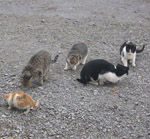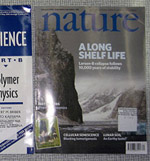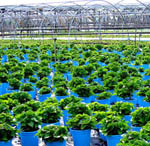Making research in biodiversity hotspots free
 Research
Research Los Amigos Biological Field Station"Most species live in the tropics, but most field biologists study temperate ecosystems."
This is the central dilemma that has spurred Nigel Pitman from Duke University to call for making research in biodiversity hotspots free. He makes this compelling argument in a short article in the journal Trends in Ecology and Evolution.
While Tropical countries are rich in biodiversity, many are very poor economically. The lack of resources likely makes it difficult for researchers in these countries to pay for the costs of conducting scientific field work.
"Just 9.6% of recent papers in the journal Ecology are based on work in tropical countries." Pittman writes. "Given this longstanding imbalance, it is no surprise that most 2010 targets set by the UN Convention on Biological Diversity will be missed."
In his article, Pittman specifically addresses the research that is conducted out of biological field stations in Tropical regions.
These field stations are important hotbeds for producing research that informs conservation by expanding our understanding of species and ecosystems.
Pittman cites an example in which a grant from 2004-2007 allowed the Los Amigos Biological Field Station, a 50-bed facility in the Peruvian Amazon, to subsidize the costs for research and training visits.
"The result was an increase of >500% in researcher-days compared to the preceding four years, resulting in the inventory of >5000 plant and animal species and the publication of 35 theses and peer-reviewed articles in 2008," Pittman writes.
"When the grant ended, research traffic returned to pre-2004 levels despite modest station fees of US$25 per night."
Based on this outcome, Pittman calls for the establishment of an endowment that would cover the costs for conducting ecological research at these biological field stations in perpetuity.
For example, the interest from establishing a single $4 million endowment for the Los Amigos would allow the station to waive research fees and cover the ongoing costs for operations and the salary of a resident director.
While $4 million sounds small, with numerous biological research faciliites across the Tropics this number would likely surge into the hundreds of millions of dollars, if not more, to make research in the region entirely free.
However, this may be an investment worth making if we truly are committed to reversing the declines of global biodiversity.
--by Rob Goldstein
Pitman, N. (2010). Research in biodiversity hotspots should be free Trends in Ecology & Evolution DOI: 10.1016/j.tree.2010.04.002




Reader Comments